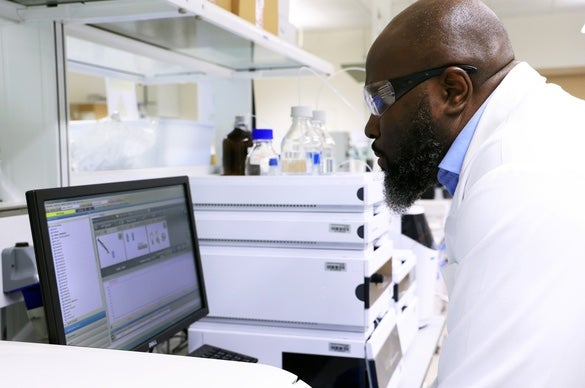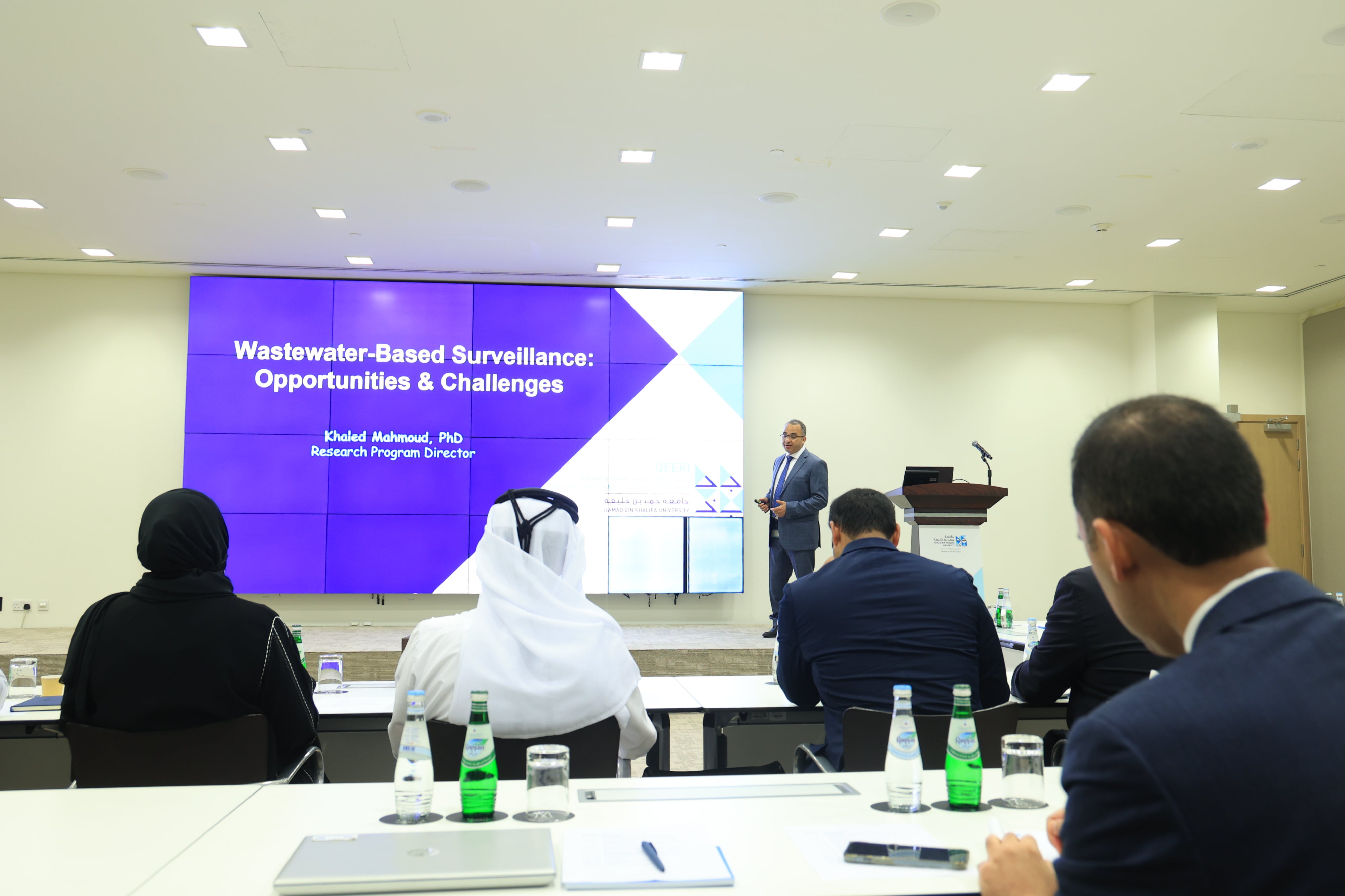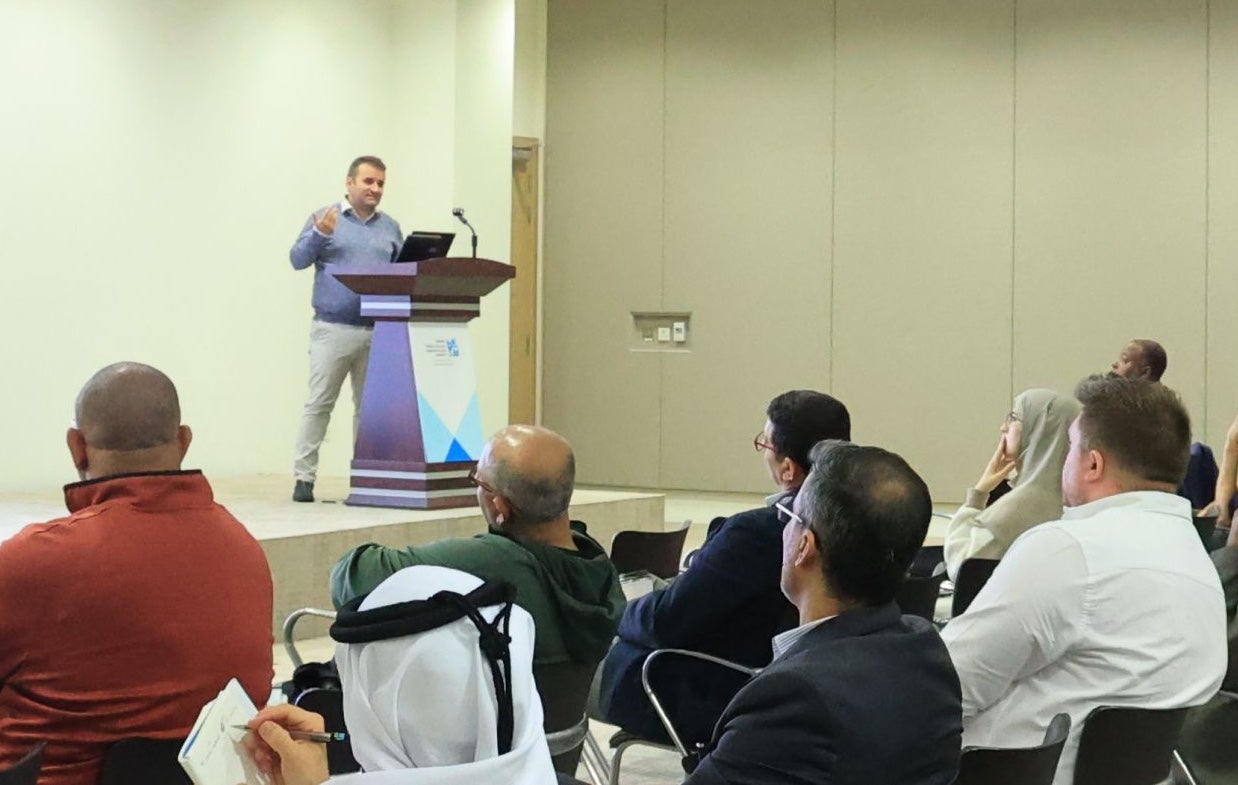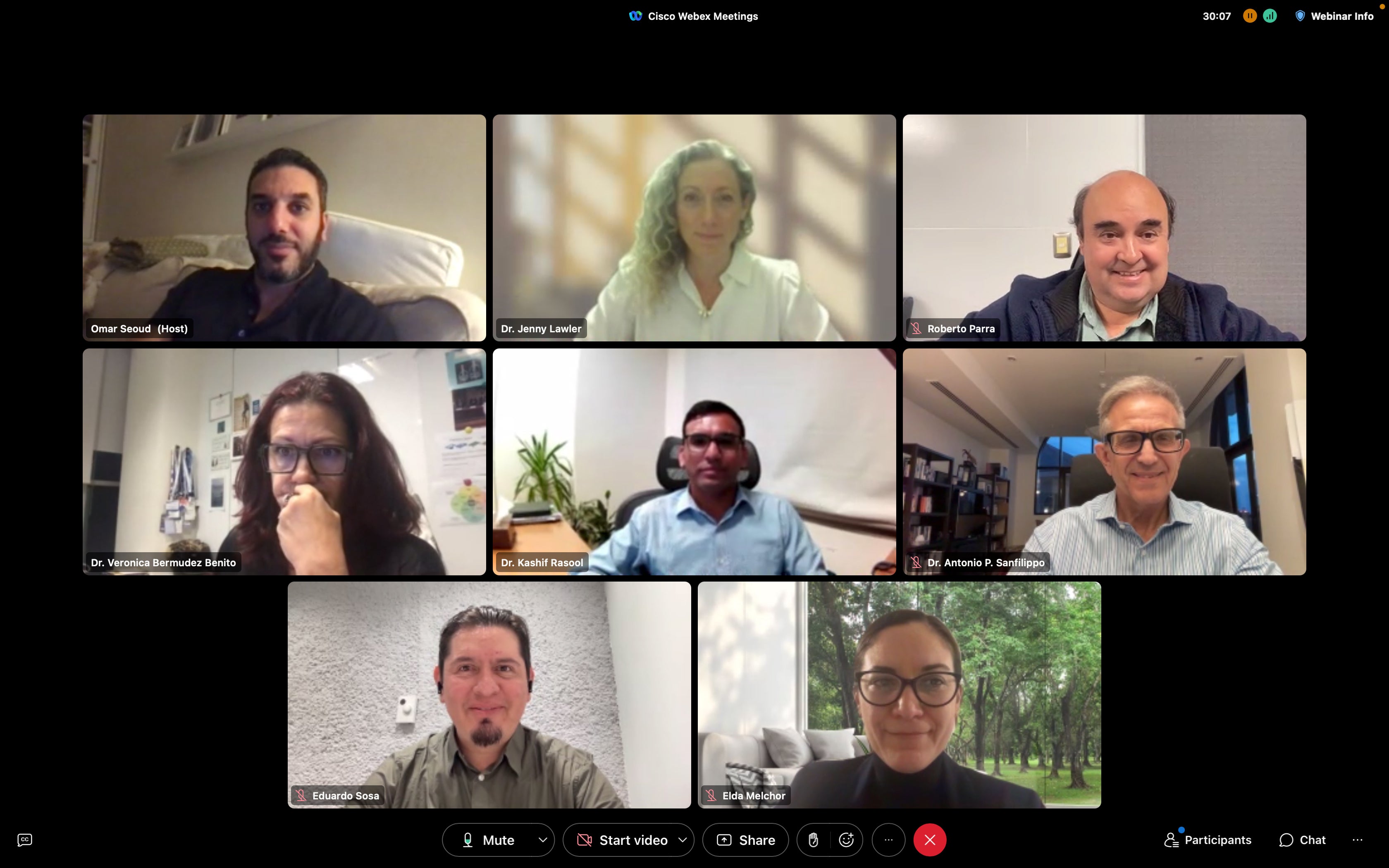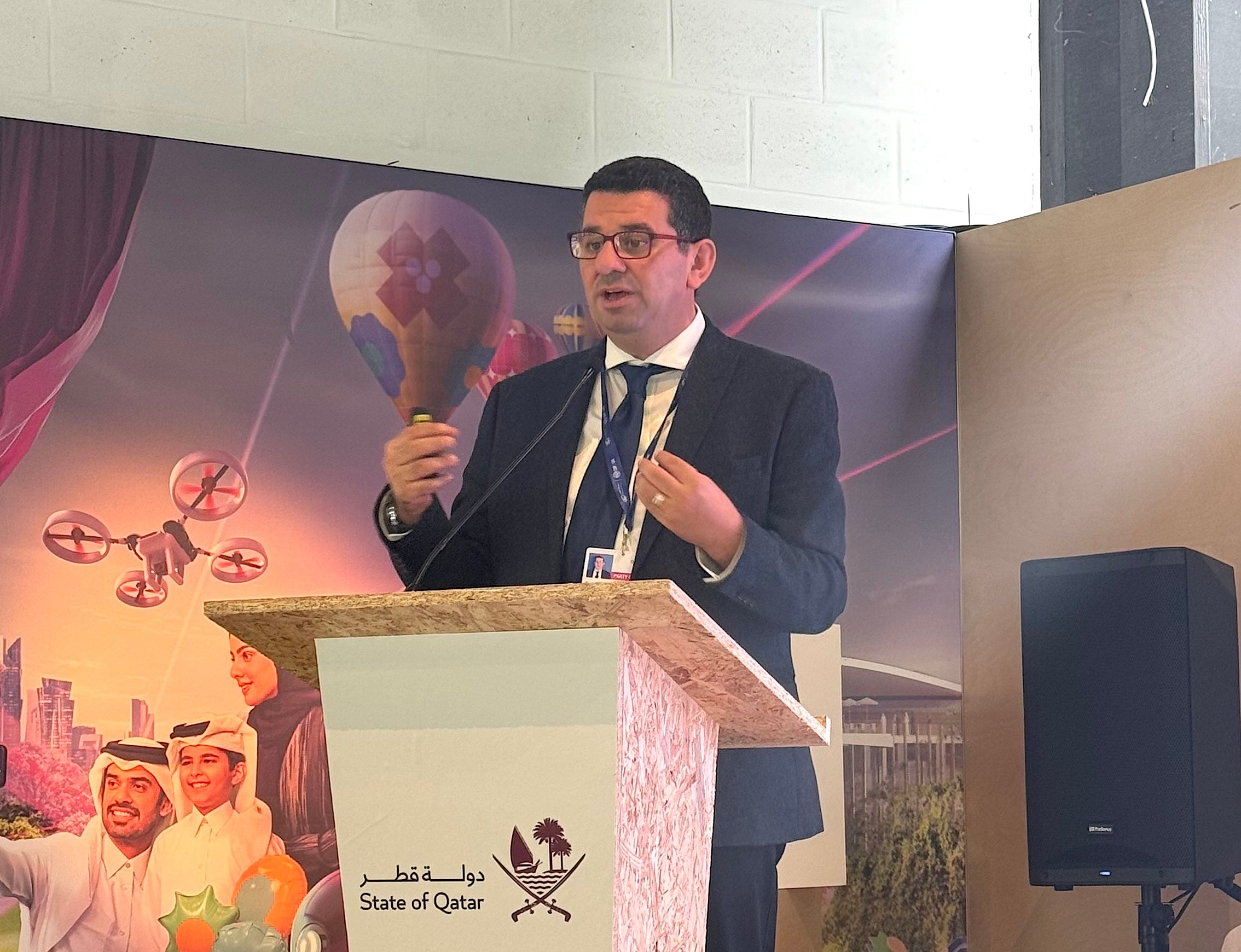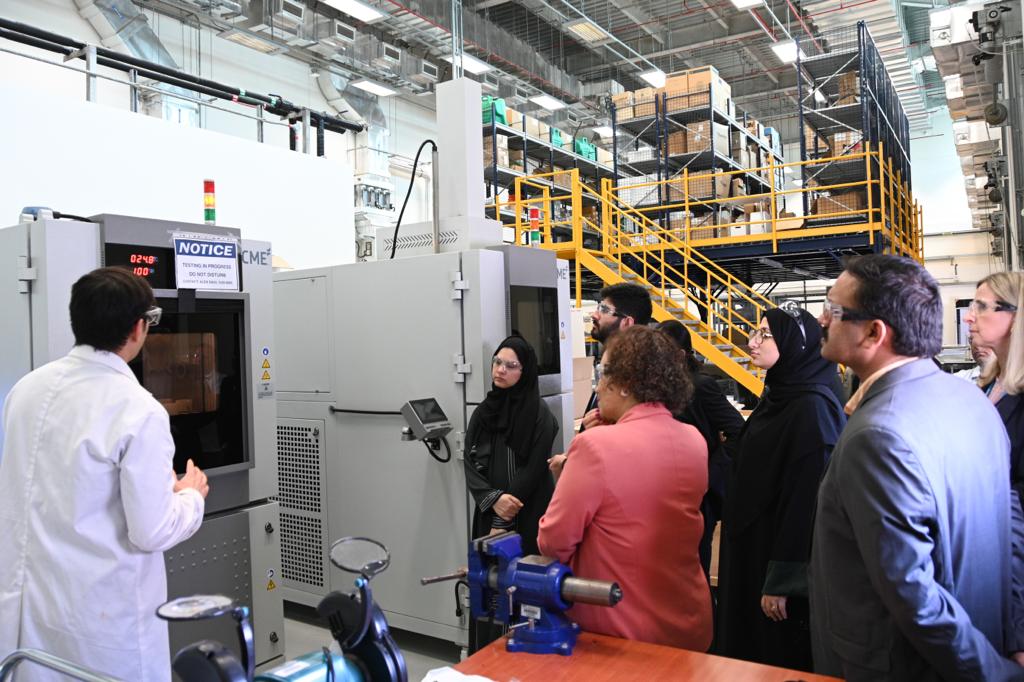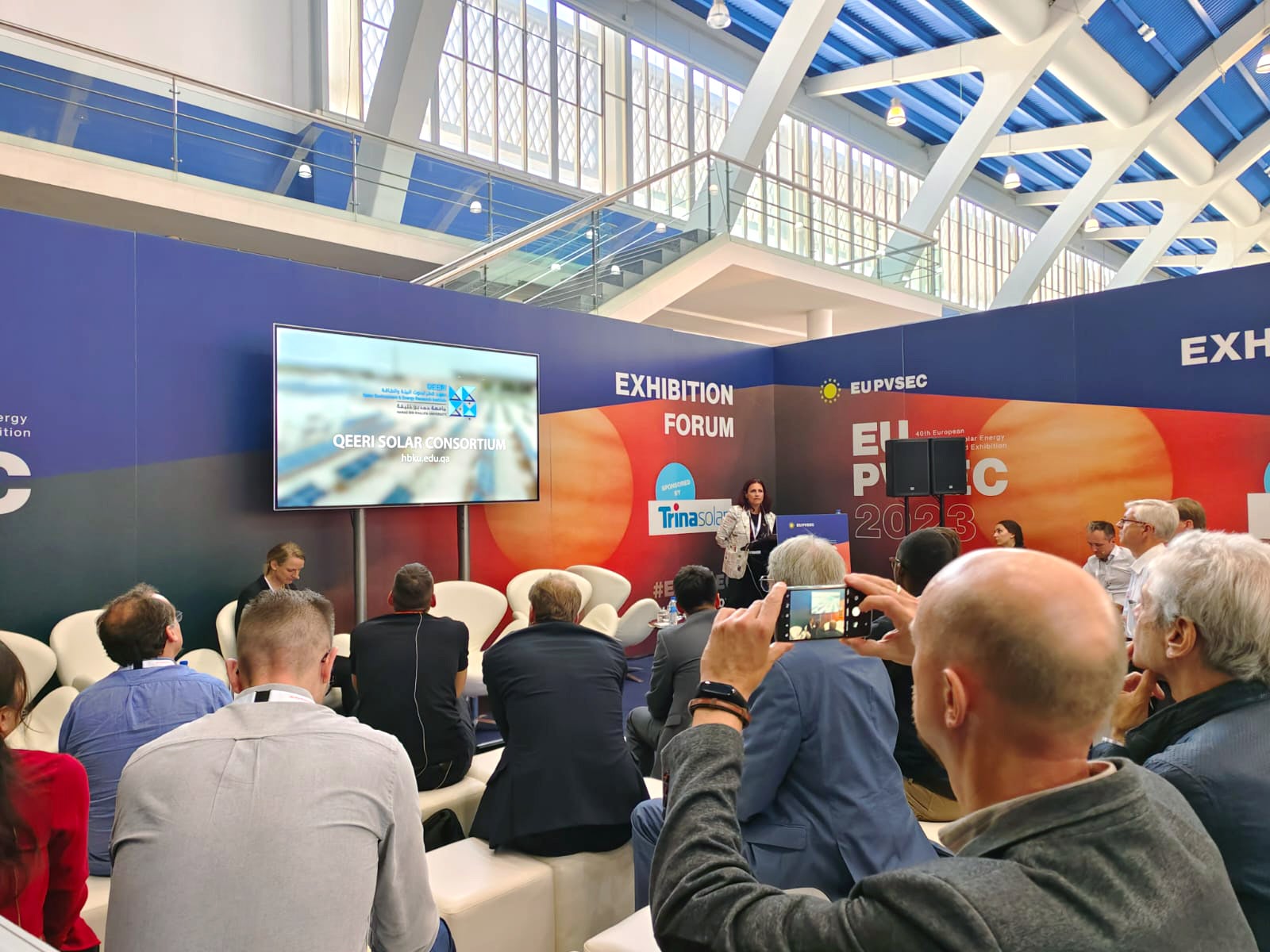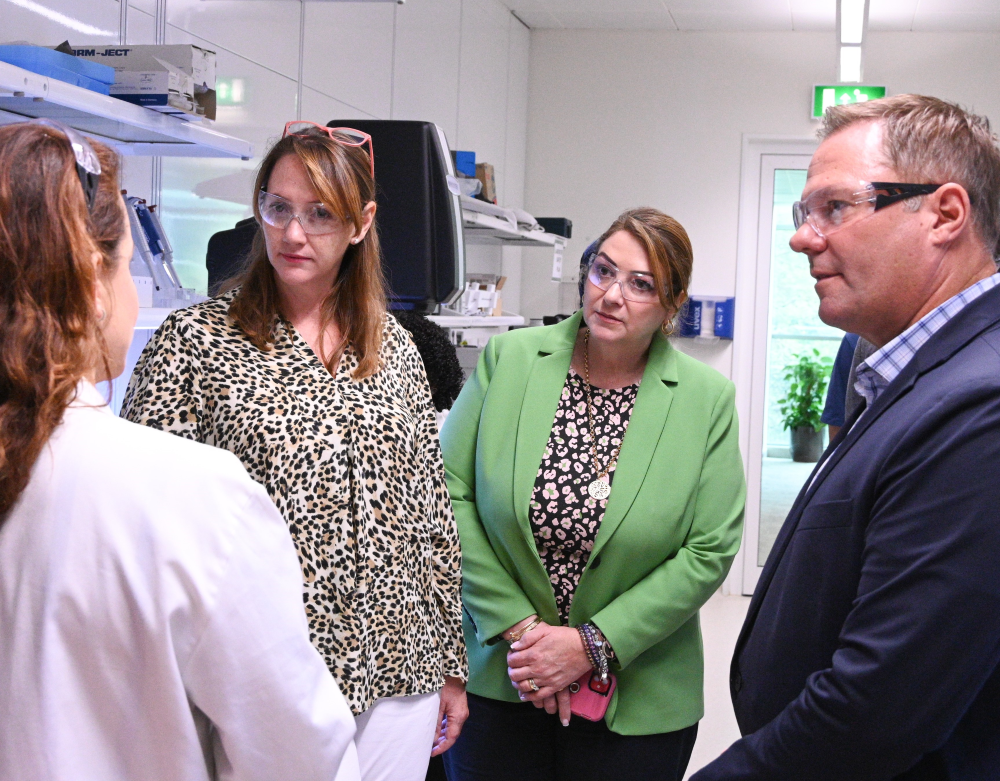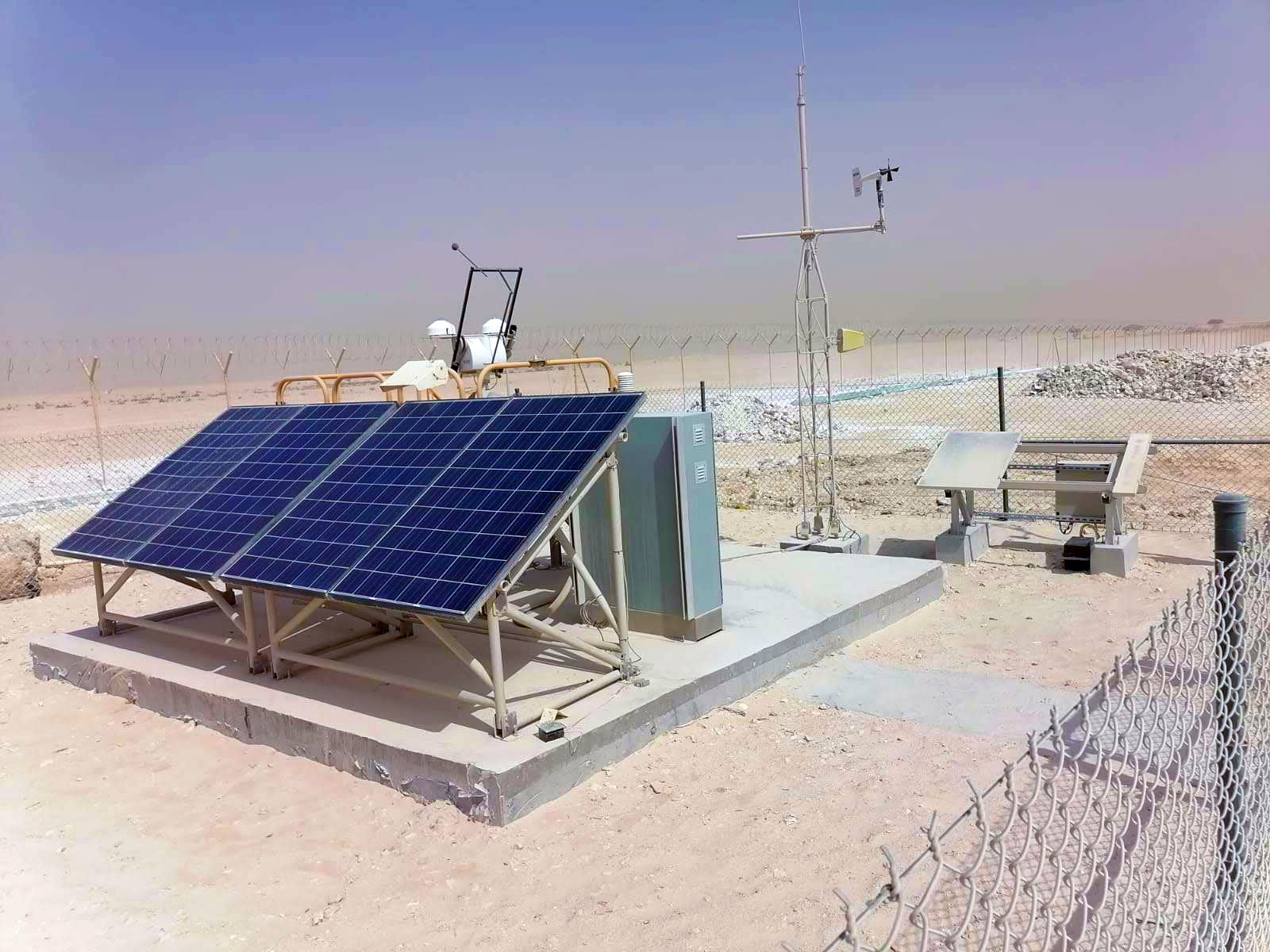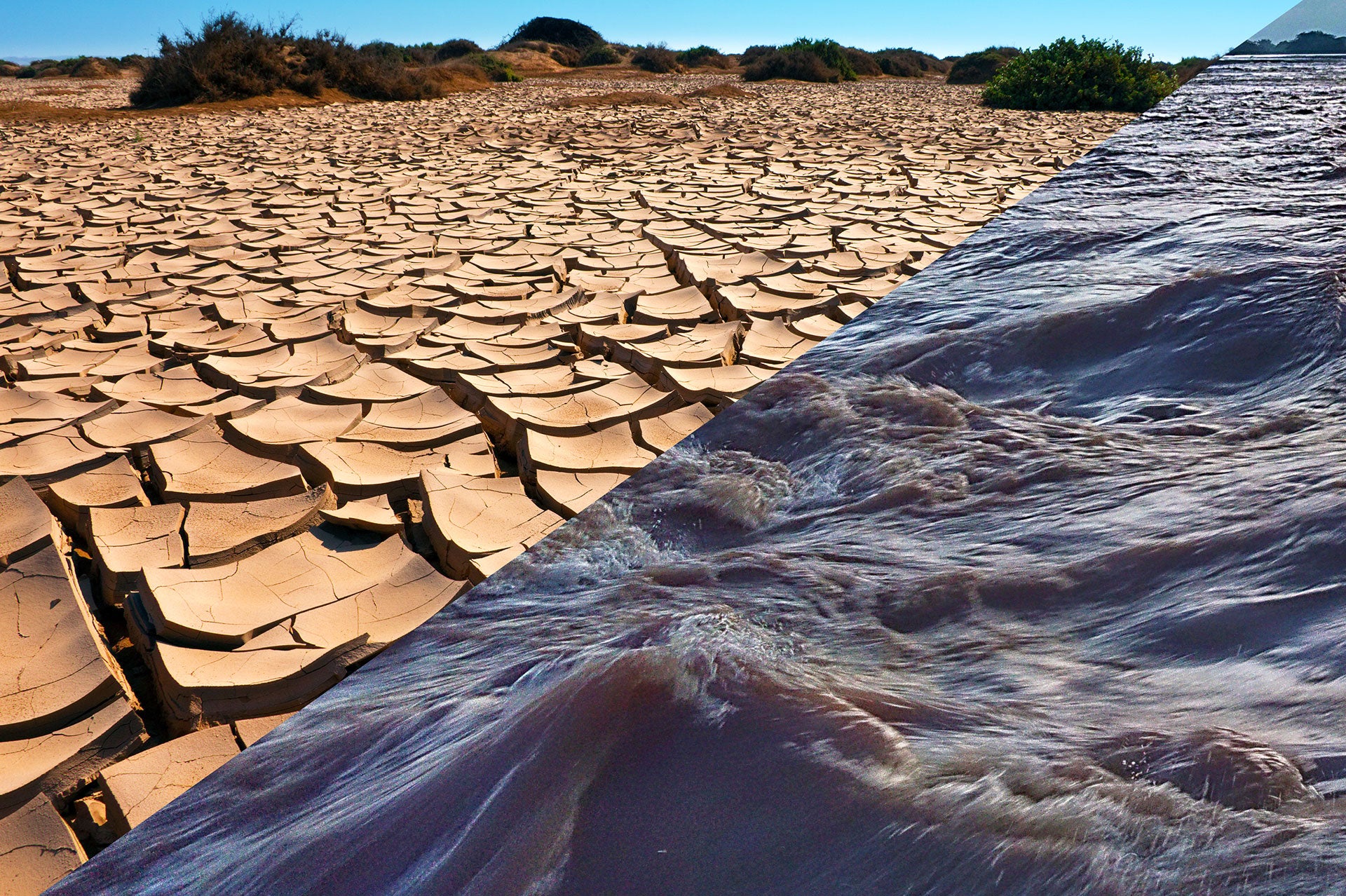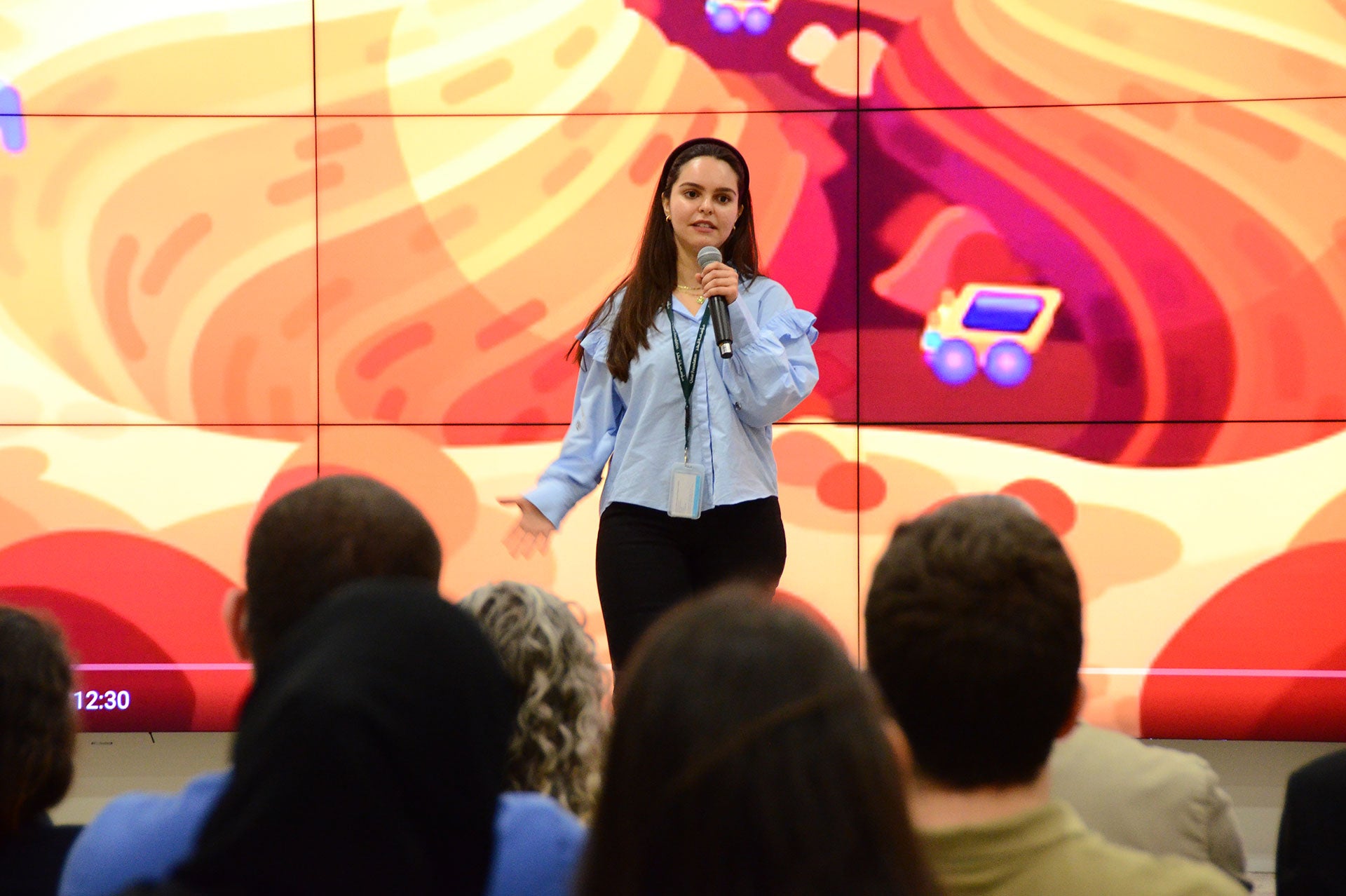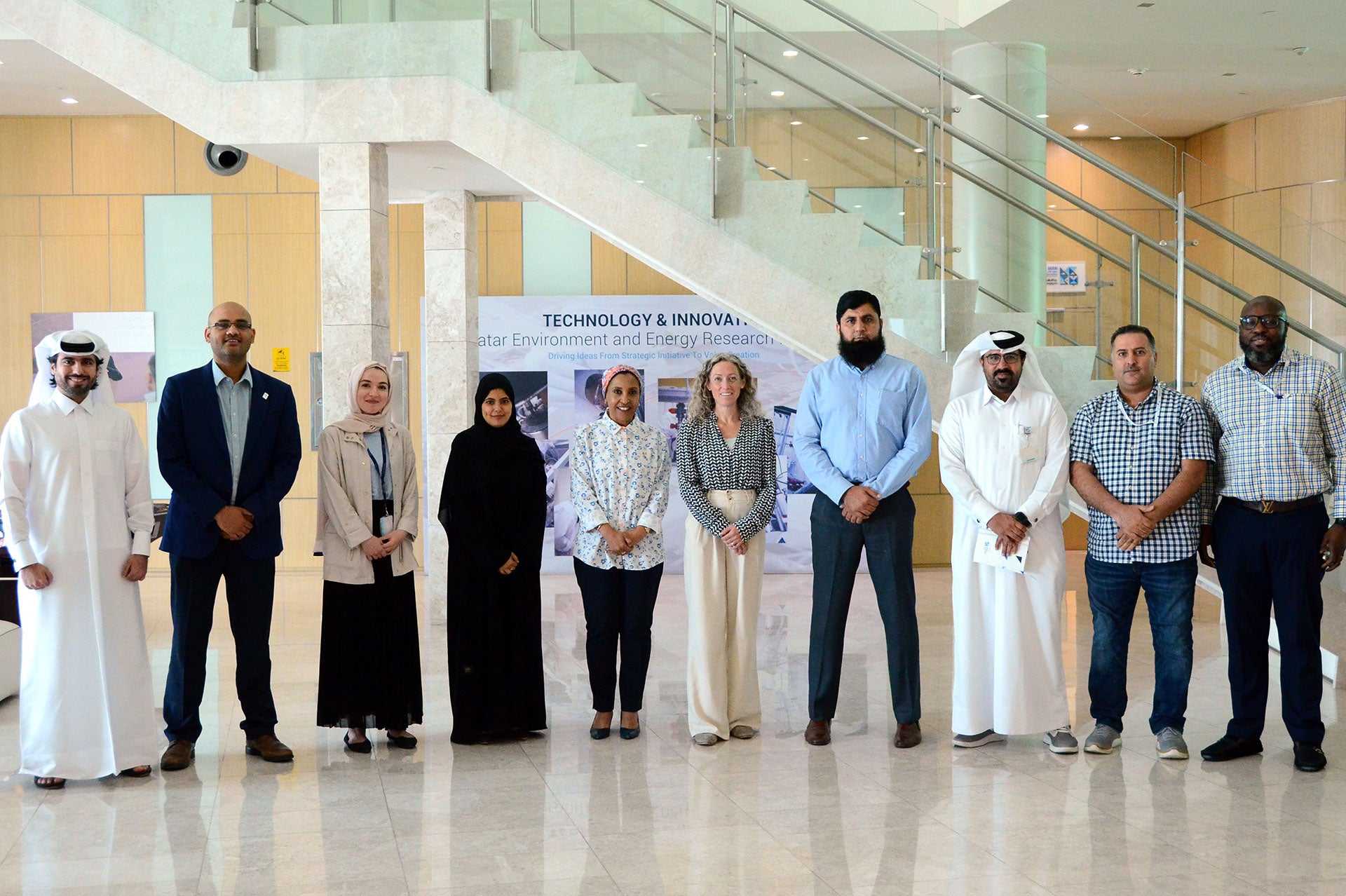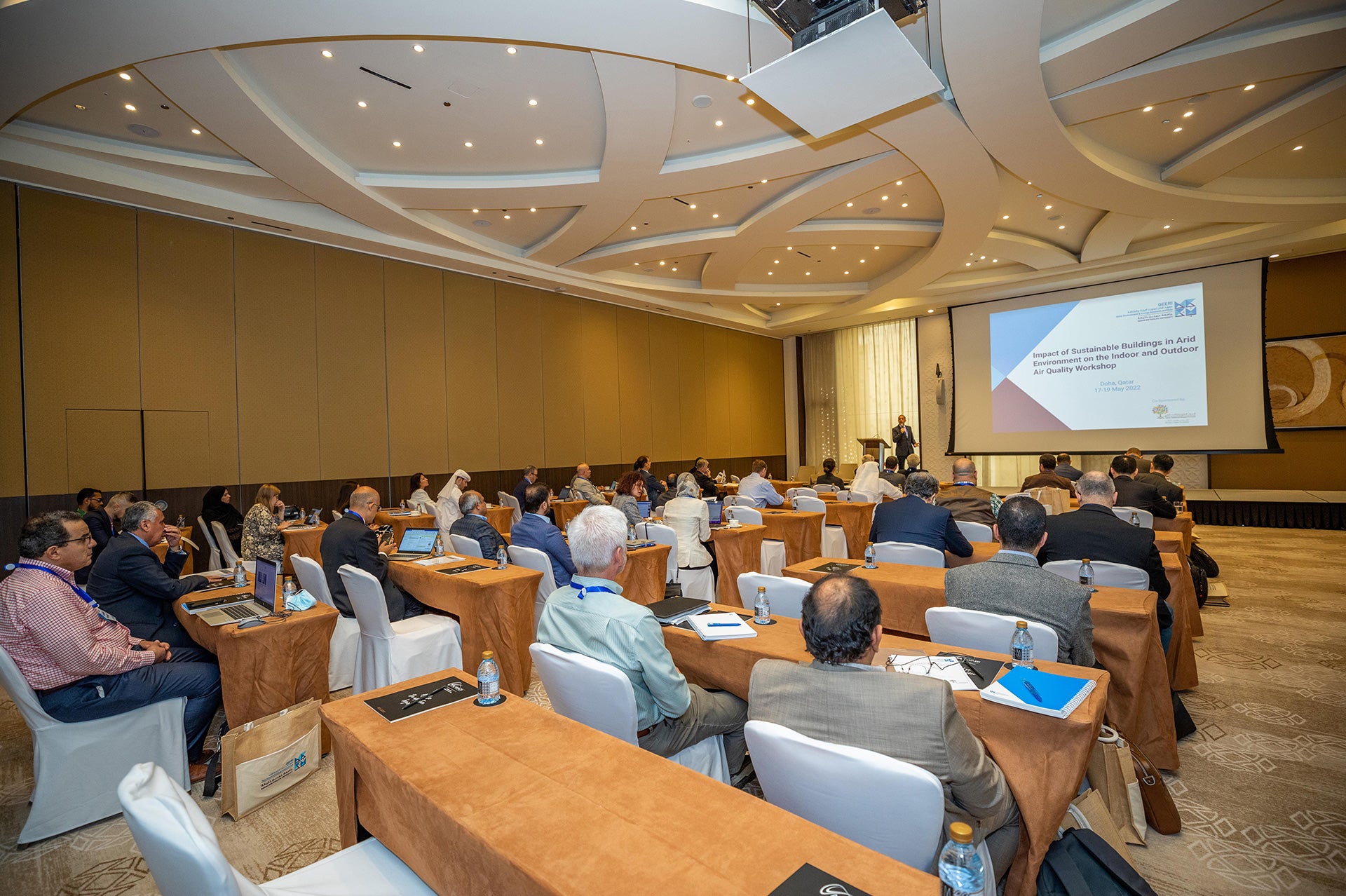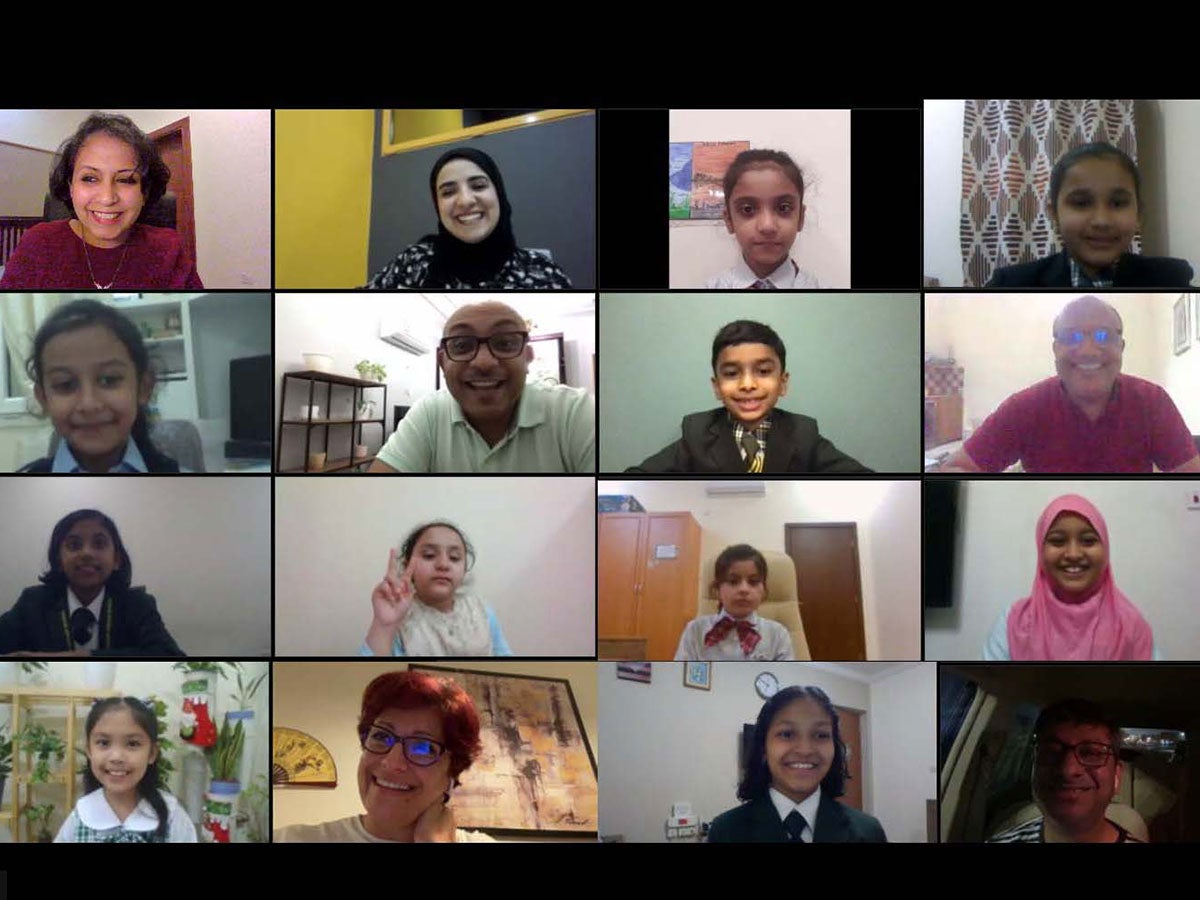
HBKU’s QEERI Develops Environmentally-Friendly Biocide
Highly efficient biocide synthesized by a team from the institute’s Water Quality Program

Scientists at Qatar Environment and Energy Research Institute (QEERI), part of Hamad bin Khalifa University (HBKU), have synthesized a new highly efficient anti-bacterial nanomaterial which is environment-friendly and is expected to be cheaper than existing commercial biocides.
The Water Quality Program team at QEERI’s Environment and Sustainability Center (ESC) used an innovative approach to develop these novel biodegradable polymeric nanospheres. It was synthesized using a one-step chemical crosslinking technique from renewable chitosan (CS), which can be sourced from shellfish and lignosulfonate derived from trees.
The material demonstrated high bactericidal properties towards aerobic Gram (-) E. coli and Gram (+) B. subtilis and anaerobic sulfate-reducing bacteria (SRB) making them ideal biocides for water disinfection. Furthermore, the new biocide has been successfully used for controlling microbiologically influenced corrosion (MIC) on carbon steel with 85 percent efficiency. It also did not show any adverse acute toxicity on the marine environment.
The bio-degradable nature of the new material, and the cheap raw materials that it uses, makes it suitable for building antibacterial coatings and membranes for the future development of more stable, sustainable, cost-efficient biomedical and environmental applications. The nanobiocide can also provide an efficient solution for the chronic microbial corrosion issue in the oil and gas industry, especially in the harsh environment in the Gulf region.
Dr. Khaled Mahmoud, Research Program Director for the Water Quality Program, said: “We are thrilled with the outcome of our work; anti-bacterial materials are widely used but can prove to be costly both financially and on the environment. This novel material is more effective, less expensive, and ‘greener’ compared to traditional commercially available products. It took many hours of collaborative work within various teams at QEERI, but seeing the tangible result makes it worth it.”
The work was done by a team of QEERI scientists including Dr. Ravi Pandey, Dr. Kashif Rasool, Dr. P. Abdul Rasheed, Tricia Gomez, Mujaheed Pasha, Dr. Said Mansour, Dr. One-Sun Le, and Dr. Khaled Mahmoud. Two patents have been filed and the work has been published in the Green Chemistry journal as the cover story.
Dr. Marc Vermeersch, executive director of QEERI, said: “At QEERI we aim to conduct cutting-edge research, development and innovation that can be beneficial, not just to Qatar, but also for the region, and the world. The work done by our scientists in producing these antibacterial nanospheres showcases the capabilities that QEERI has. This will have a direct impact on various industries including oil and gas, desalination and biomedicine. We remain committed to helping Qatar find solutions for the grand challenges related to energy, water and environment, and are proud to see this top quality and world-class research produced in our labs at QEERI.”
QEERI’s Environment and Sustainability Center aims to assess, enable and develop national environment solutions to address challenges in air and water quality and climate change through sustainable societal, economic and governance research.
Related News
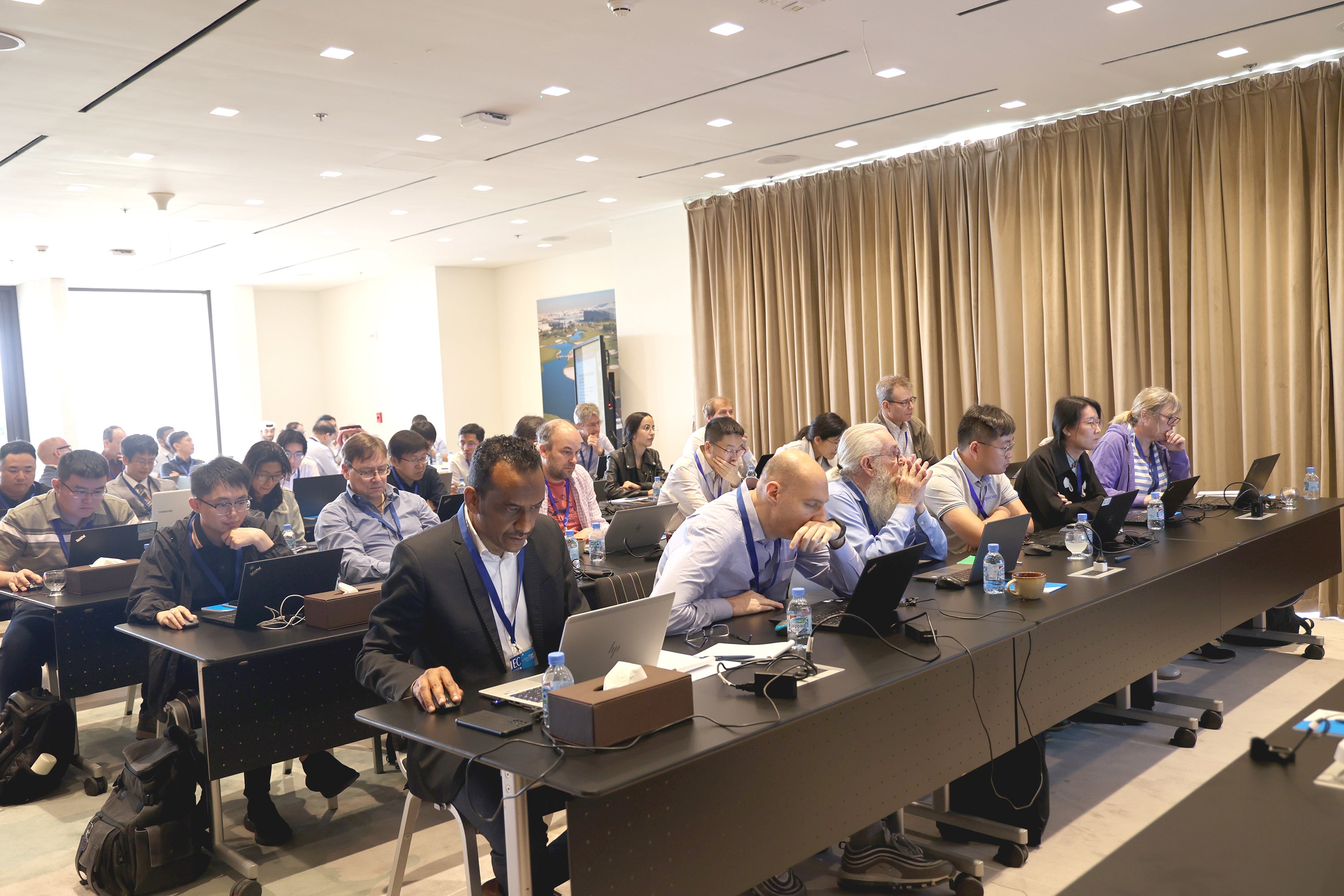
QEERI Hosts Meetings to Advance International Standards for Photovoltaic Modules
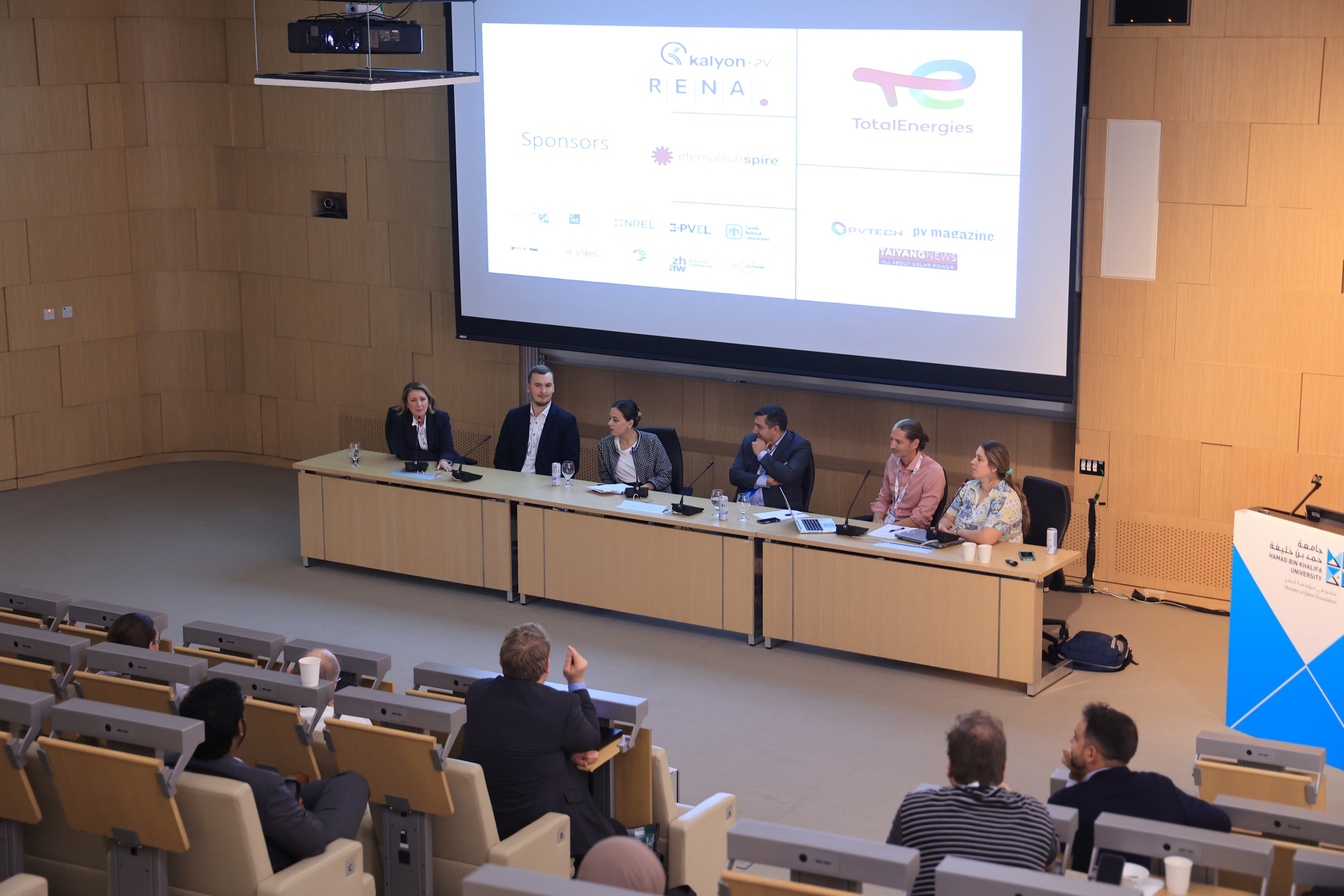
HBKU’s QEERI Hosts the 10th Bifacial Photovoltaic Workshop focused on desert technologies
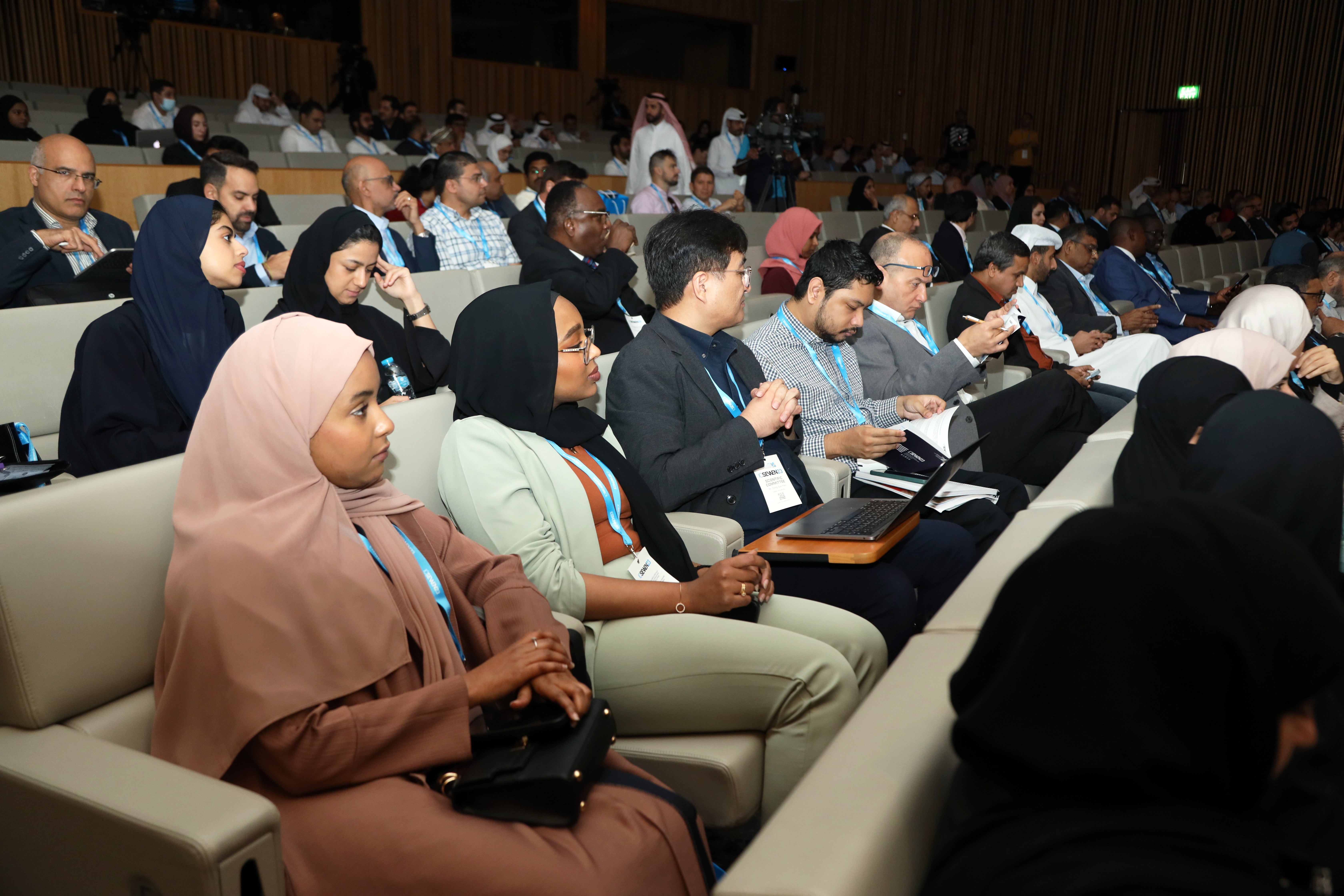
HBKU’s QEERI Concludes ICSEWEN23, Announces Winners, and Unveils Environmental Insights
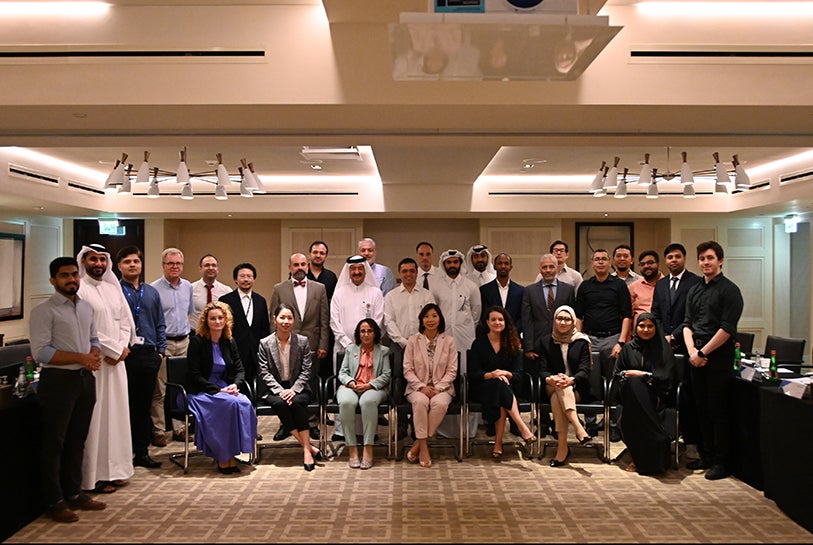
QEERI Corrosion Center Renews Strong Ties with Industry Partners and Stakeholders

QEERI Hosts Meetings to Advance International Standards for Photovoltaic Modules

HBKU’s QEERI Hosts the 10th Bifacial Photovoltaic Workshop focused on desert technologies

HBKU’s QEERI Concludes ICSEWEN23, Announces Winners, and Unveils Environmental Insights

QEERI Corrosion Center Renews Strong Ties with Industry Partners and Stakeholders

QEERI Hosts Meetings to Advance International Standards for Photovoltaic Modules

HBKU’s QEERI Hosts the 10th Bifacial Photovoltaic Workshop focused on desert technologies

HBKU’s QEERI Concludes ICSEWEN23, Announces Winners, and Unveils Environmental Insights

QEERI Corrosion Center Renews Strong Ties with Industry Partners and Stakeholders

QEERI Hosts Meetings to Advance International Standards for Photovoltaic Modules

HBKU’s QEERI Hosts the 10th Bifacial Photovoltaic Workshop focused on desert technologies

HBKU’s QEERI Concludes ICSEWEN23, Announces Winners, and Unveils Environmental Insights

QEERI Corrosion Center Renews Strong Ties with Industry Partners and Stakeholders

QEERI Hosts Meetings to Advance International Standards for Photovoltaic Modules

HBKU’s QEERI Hosts the 10th Bifacial Photovoltaic Workshop focused on desert technologies

HBKU’s QEERI Concludes ICSEWEN23, Announces Winners, and Unveils Environmental Insights

QEERI Corrosion Center Renews Strong Ties with Industry Partners and Stakeholders

QEERI Hosts Meetings to Advance International Standards for Photovoltaic Modules

HBKU’s QEERI Hosts the 10th Bifacial Photovoltaic Workshop focused on desert technologies

HBKU’s QEERI Concludes ICSEWEN23, Announces Winners, and Unveils Environmental Insights

QEERI Corrosion Center Renews Strong Ties with Industry Partners and Stakeholders

QEERI Hosts Meetings to Advance International Standards for Photovoltaic Modules

HBKU’s QEERI Hosts the 10th Bifacial Photovoltaic Workshop focused on desert technologies

HBKU’s QEERI Concludes ICSEWEN23, Announces Winners, and Unveils Environmental Insights

QEERI Corrosion Center Renews Strong Ties with Industry Partners and Stakeholders

QEERI Hosts Meetings to Advance International Standards for Photovoltaic Modules

HBKU’s QEERI Hosts the 10th Bifacial Photovoltaic Workshop focused on desert technologies

HBKU’s QEERI Concludes ICSEWEN23, Announces Winners, and Unveils Environmental Insights

QEERI Corrosion Center Renews Strong Ties with Industry Partners and Stakeholders

QEERI Hosts Meetings to Advance International Standards for Photovoltaic Modules

HBKU’s QEERI Hosts the 10th Bifacial Photovoltaic Workshop focused on desert technologies

HBKU’s QEERI Concludes ICSEWEN23, Announces Winners, and Unveils Environmental Insights

QEERI Corrosion Center Renews Strong Ties with Industry Partners and Stakeholders

QEERI Hosts Meetings to Advance International Standards for Photovoltaic Modules

HBKU’s QEERI Hosts the 10th Bifacial Photovoltaic Workshop focused on desert technologies

HBKU’s QEERI Concludes ICSEWEN23, Announces Winners, and Unveils Environmental Insights

QEERI Corrosion Center Renews Strong Ties with Industry Partners and Stakeholders

QEERI Hosts Meetings to Advance International Standards for Photovoltaic Modules

HBKU’s QEERI Hosts the 10th Bifacial Photovoltaic Workshop focused on desert technologies

HBKU’s QEERI Concludes ICSEWEN23, Announces Winners, and Unveils Environmental Insights

QEERI Corrosion Center Renews Strong Ties with Industry Partners and Stakeholders

QEERI Hosts Meetings to Advance International Standards for Photovoltaic Modules

HBKU’s QEERI Hosts the 10th Bifacial Photovoltaic Workshop focused on desert technologies

HBKU’s QEERI Concludes ICSEWEN23, Announces Winners, and Unveils Environmental Insights

QEERI Corrosion Center Renews Strong Ties with Industry Partners and Stakeholders

QEERI Hosts Meetings to Advance International Standards for Photovoltaic Modules

HBKU’s QEERI Hosts the 10th Bifacial Photovoltaic Workshop focused on desert technologies

HBKU’s QEERI Concludes ICSEWEN23, Announces Winners, and Unveils Environmental Insights

QEERI Corrosion Center Renews Strong Ties with Industry Partners and Stakeholders

QEERI Hosts Meetings to Advance International Standards for Photovoltaic Modules

HBKU’s QEERI Hosts the 10th Bifacial Photovoltaic Workshop focused on desert technologies

HBKU’s QEERI Concludes ICSEWEN23, Announces Winners, and Unveils Environmental Insights

QEERI Corrosion Center Renews Strong Ties with Industry Partners and Stakeholders

QEERI Hosts Meetings to Advance International Standards for Photovoltaic Modules

HBKU’s QEERI Hosts the 10th Bifacial Photovoltaic Workshop focused on desert technologies

HBKU’s QEERI Concludes ICSEWEN23, Announces Winners, and Unveils Environmental Insights

QEERI Corrosion Center Renews Strong Ties with Industry Partners and Stakeholders

QEERI Hosts Meetings to Advance International Standards for Photovoltaic Modules

HBKU’s QEERI Hosts the 10th Bifacial Photovoltaic Workshop focused on desert technologies

HBKU’s QEERI Concludes ICSEWEN23, Announces Winners, and Unveils Environmental Insights

QEERI Corrosion Center Renews Strong Ties with Industry Partners and Stakeholders

QEERI Hosts Meetings to Advance International Standards for Photovoltaic Modules

HBKU’s QEERI Hosts the 10th Bifacial Photovoltaic Workshop focused on desert technologies

HBKU’s QEERI Concludes ICSEWEN23, Announces Winners, and Unveils Environmental Insights

QEERI Corrosion Center Renews Strong Ties with Industry Partners and Stakeholders

QEERI Hosts Meetings to Advance International Standards for Photovoltaic Modules

HBKU’s QEERI Hosts the 10th Bifacial Photovoltaic Workshop focused on desert technologies

HBKU’s QEERI Concludes ICSEWEN23, Announces Winners, and Unveils Environmental Insights

QEERI Corrosion Center Renews Strong Ties with Industry Partners and Stakeholders

QEERI Hosts Meetings to Advance International Standards for Photovoltaic Modules

HBKU’s QEERI Hosts the 10th Bifacial Photovoltaic Workshop focused on desert technologies

HBKU’s QEERI Concludes ICSEWEN23, Announces Winners, and Unveils Environmental Insights

QEERI Corrosion Center Renews Strong Ties with Industry Partners and Stakeholders

QEERI Hosts Meetings to Advance International Standards for Photovoltaic Modules

HBKU’s QEERI Hosts the 10th Bifacial Photovoltaic Workshop focused on desert technologies

HBKU’s QEERI Concludes ICSEWEN23, Announces Winners, and Unveils Environmental Insights






